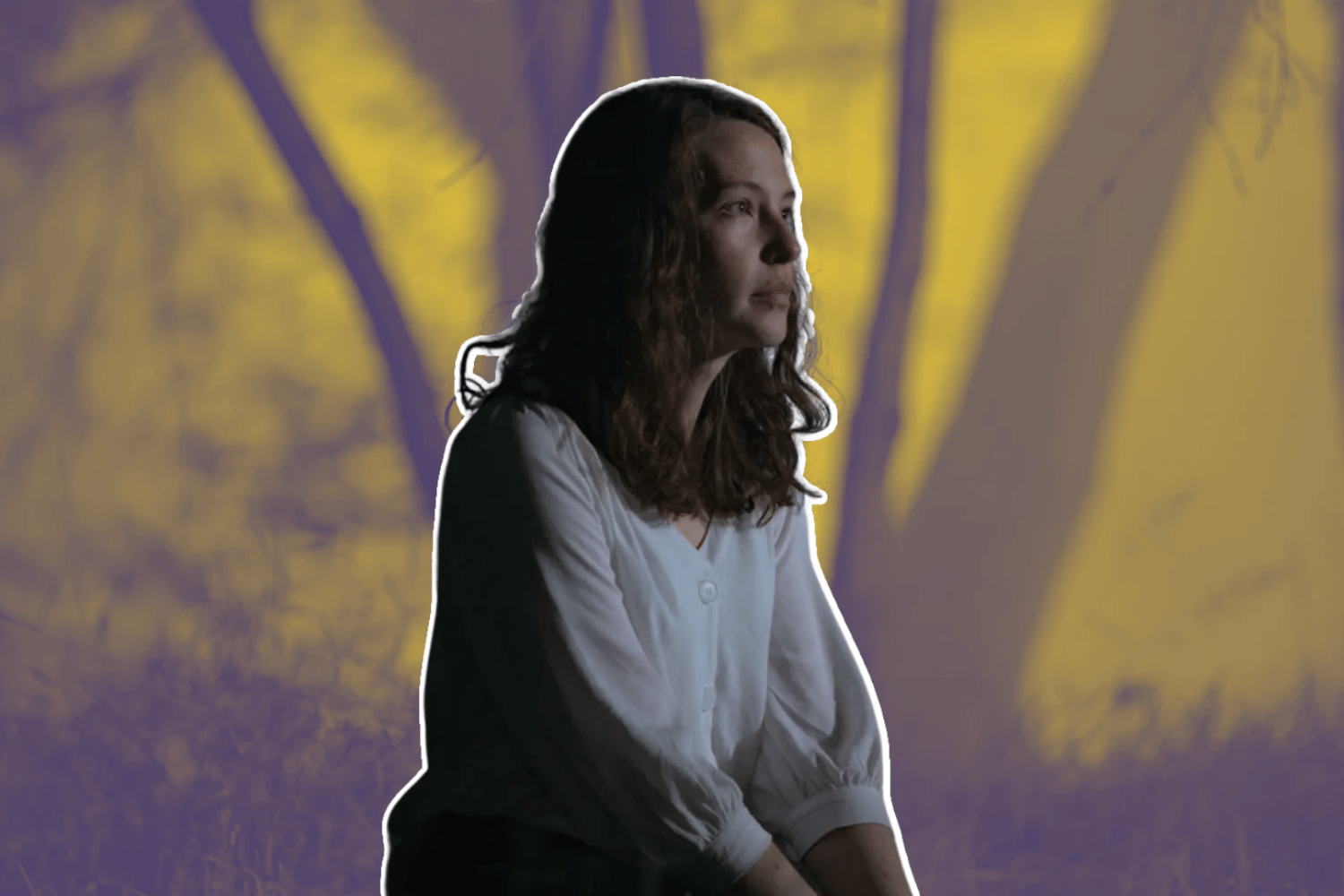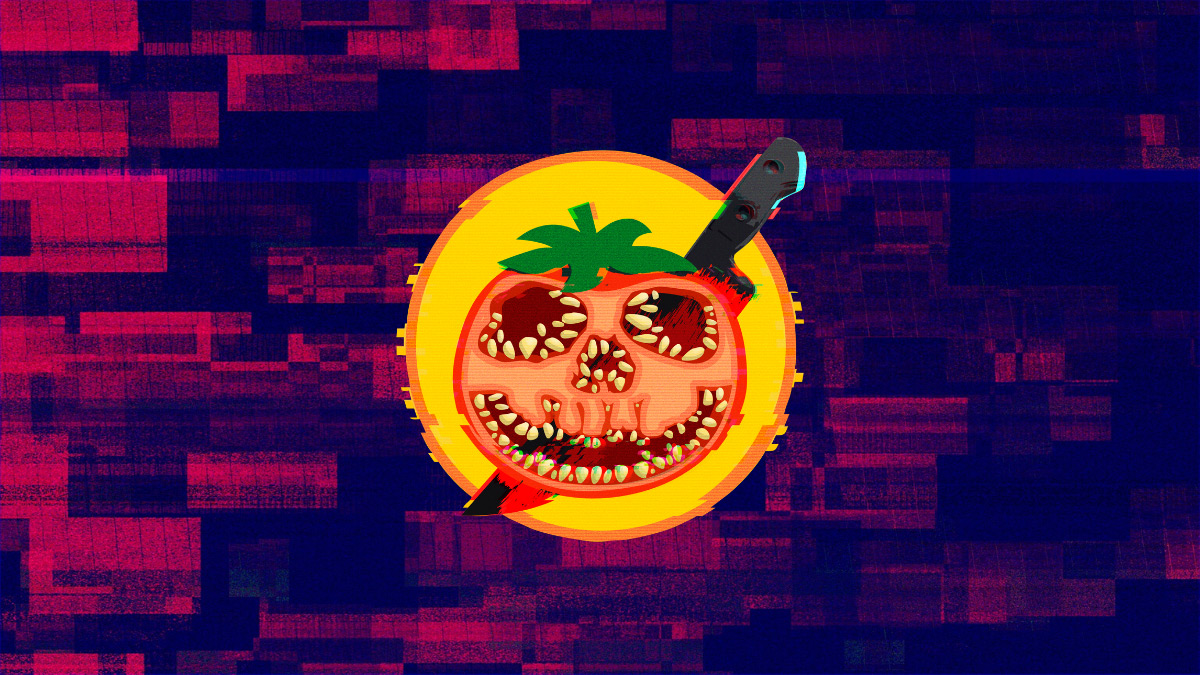Editorials
Battlefields and Broken Covenants in ‘The Feast’
November 8th, 2022 | By Anna McKibbin

In an interview, The Feast director Lee Haven Jones described Welsh history as “people extracting things from the ground, usually from the ground, always from the ground.” Such a fundamental break in the order of the world exacts a tangible cost. In The Feast, the dinner party becomes a battlefield, the guests’ bodies rendered landscapes for violent partition.
The Feast’s obsession with rearranging the natural order feels Biblical, reminiscent of the Israelites post-Exodus, a people hopelessly at odds with their landscape, punished for their acts of discontent. For Biblical scholars of the Old Testament this is a perfect analogy, a snapshot into a world where man and God were permanently fractured. Wedged between the sun and the sand, Moses splits the rock, letting the river flow and unfixing the promise God had given his people.
There is a similar tension present in The Feast. Disdain for the natural is layered in increasingly obvious ways, the concentration of blame blanketing a widening group of complicit parties. But just as in the Bible story, the ground is beaten, broken apart to dredge up something designed to sit beneath.
READ MORE: The Hole in the Ground Finds the Irish Horror in A24
Wales, as every colonised nation, has a long history of non-conformity — rooting the political, religious and cultural identity of the country in a common soil of necessary resistance. For the devolved states of the UK, speaking their national language is a profound act of reclamation after its attempted eradication by the British empire. According to a 2021 survey, 29 percent of the population speak Welsh. In this sense, The Feast not only reflects a lived reality but speaks to the themes of returning woven through the film.
Translated subtitles offer a compelling platform to publicly wrestle with the ideas of nature and adaptation. As English speakers watching Welsh-speaking cinema, we are purposely reckoning with the things we can’t understand, moments in the story rendered silent, proven untranslatable. In Multilingual Currents in Literature, Rachel Gilmour and Tamar Steinitz argue that “the gap between languages…resembles a no-man’s land or a demilitarised zone.” Cinema is full of pauses, empty spaces devoid of literal meaning but laden with figurative language. A constant creative translation, a balancing act between what the creator intended and what the audience understands. This is a film charting the violence inflicted on characters in the fight to possess and repossess space, and in doing so, it unwittingly preserves the metaphorical land of unspoken truth.
But Cadi (Annes Elwy) also offers The Feast a way of understanding identity that transcends the simple occupying or sacrificing of land. She silently antagonises the family determined to buy and drain the earth around them. Initially her rejection of their possessive binary is manifested in small ways, the painting that hangs on the wall is all lines, block colours intersecting like converging roads. It is an abstract rendering of “The Rise,” the land Cadi is from. She reaches over to feel its texture, leaning against the bumps left by rough brush strokes — for her, this is something to move through, to sit in, not to own. The camera movement reflects this, holding Cadi’s cheek and the painting side by side. As the perspective shifts the painting blurs into colours, an indistinguishable sequence of shapes.
Gradually, the film grows more intense. The threatening rip of a gunshot, or the strum of an electric guitar, are supplemented with creeping gore; a tragic arc where the potential is replaced with the inevitable. Eventually, The Feast breaks out in a sea of unbridled chaos, each act of violence both orchestrated by Cadi and stemming from each characters’ own unbridled impulses.
“After you’ve taken everything, what will be left?” Glenda (Nia Roberts) exclaims, desperation simmering beneath her delivery. Death is a matter of self-consumption in The Feast, the families’ bodies are offered back to the land, designed to be erased, swallowed whole. The answer to her question is simple: nothing, if they get their way.
Guto (Steffan Cennydd) is poisoned, possessed by the wild mushrooms Cadi offers him, horrified by his own body. He is doomed to have it torn apart in the woods he was haphazardly dismembering at the start of the film. Gweirydd’s (Sion Alun Davies) fate is more complicated, bound up in his desire to conquer and control, not exactly offered back to the land, but subjected to the deadly cost of Cadi’s trap. In their first encounter, Lee Haven Jones cleverly positions them across from one another, staring intently at the other despite the conversation really being between Gweirydd and his mother. The tension which colours this interaction is hard to describe — predatory, yet it is unclear exactly how. Standing in opposition, hunter and hunted become blurred.
The Feast lives up to its name. Remnants of the body are consumed, rendered non-existent. Every character in the film is a victim of their own appetite, struck by a desire to eradicate. Gwynn’s leg is served to Euros (Rhodri Meilir), who is untampered in his appetite, slipping into an unconscious stupor after gorging. These people are unwittingly constructing the perfect murder, leaving their bodies to disintegrate in the woods, eating one another, obstructing the evidence.
All attempts to elevate the family’s artificial home above the unruly outdoors are useless. By the end the cavernous windows reveal a property scattered with dead bodies, the antiseptic marble walls stained with blood. The lines that were physically drawn to protect the land they bought and the class lines that bind this dysfunctional family together are all proven meaningless conceits, exposed as hatefully flawed under the harsh glare of moonlight. Like the painting Cadi clings to, they fade into obscurity under close inspection. In the end the only lines that exact a measurable consequence are the moral one crossed in their attempt to maintain their wealth.
Is their destruction a hopeful conclusion? Cadi, an embodiment of the desecrated Welsh land, wanders into the sun — a twisted smile, glinting beneath layers of dried blood, soil seeping into the crevices of her hands. All of it is proof that she had quarreled with this family, and through them she showed herself holy.

